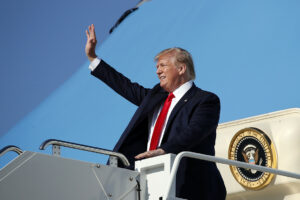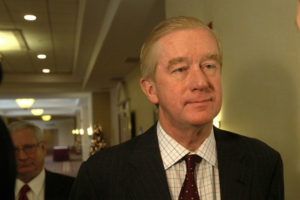There once were a few presidential political truisms upon which one could count.
- Incumbent presidents were almost impossible to defeat.
- Presidents who faced intraparty challenges on the way to their nominations were damaged goods going into the election; they would lose.
Then along came Donald J. Trump to upset many politically traditional thoughts.
I am looking at the Republican Party challengers that are already running or are considering a run against Trump. Former Massachusetts Gov. William Weld already is in the hunt for the GOP nomination. Former South Carolina governor and congressman Mark Sanford might get in.
Will either or both of them be able to inflict enough damage on Trump to ensure he gets beat in November 2020? I wish.
Let’s flash back for a moment. President Johnson got challenged in 1968 by Sens. Robert Kennedy and Eugene McCarthy in the Democratic primary. LBJ dropped out. RFK was murdered. Clean Gene lost the nomination to Vice President Hubert Humphrey, who then got beat by Richard Nixon. Republican President Ford faced a 1976 challenge from Ronald Reagan, and then lost the election to Jimmy Carter. President Carter got challenged by Sen. Edward Kennedy in 1980 and then wiped out by Reagan.
The future might seem bleak, then, for Donald Trump as he seeks re-election.
I am not going to count him out strictly on the basis of one or possibly two GOP challengers.
Trump has this way, strange as it seems, of demonizing his foes. He did so in 2016 while wiping out 16 GOP contestants and then as he did against Hillary Rodham Clinton.
What’s more, the cult following the president has developed within the Republican Party voting base suggests to many of us that the core Trump support is going to hold firm no matter what.
I do hope that Weld — and maybe Sanford — can soften up this guy enough for whomever the Democrats nominate, enabling the other party nominee to finish him off in the fall election next year. I want him out of office.
Except that Donald Trump has obliterated so many conventional political norms that it would be folly to presume any sort of tradition will remain true to form.





